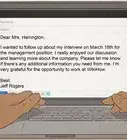wikiHow is a “wiki,” similar to Wikipedia, which means that many of our articles are co-written by multiple authors. To create this article, 17 people, some anonymous, worked to edit and improve it over time.
wikiHow marks an article as reader-approved once it receives enough positive feedback. In this case, 100% of readers who voted found the article helpful, earning it our reader-approved status.
This article has been viewed 124,559 times.
Learn more...
A job fair is a unique networking opportunity that puts many different employers under one roof to network with potential employees, usually over the course of just one day. Job fairs can put participants on the fast-track to gaining a job, help companies fill vacancies and solve workforce issues in the community. In order to organize a successful job fair, you'll want to cater to both the job seeker and the company looking for future employees.
Steps
Planning the Fair
-
1Form a committee or group of individuals who will be in charge of plans for the job fair in clearly defined roles.
- Depending on the size of your job fair, it may be important to have one or more people focused on the following areas: marketing, logistics, volunteer/staff for the event, employer contact, signs and graphics, secretarial and administrative duties. It may be helpful to have one or two people overall job fair coordinators.
-
2Set a date and time for your job fair at least 4 months ahead of time. Detail a budget that includes money for the venue and advertising.[1]Advertisement
-
3Find a place to have your job fair and reserve the space. Make a detailed diagram layout of the space and block out areas for company booths, registration tables, concessions and so forth.
-
4Invite companies to participate in the job fair. Aim for a mix of companies from a variety of industries that have jobs openings available, so you can cater to a broad segment of job seekers. As you get confirmations, ask if a company has any special equipment needs for the day.[2]
-
5Distribute marketing materials. Place fliers and information at nearby colleges and high schools, and throughout community gathering places like coffee shops, libraries and grocery stores. Consider placing ads in local and regional newspapers, as well as trade journals. Set up media coverage the day of the event, as well.[3]
-
6Design a professional job fair packet that each job seeker will receive upon entering the fair. The information should include a map and list of companies represented at the fair.
-
7Set up booths at the venue. Consider having an interview room or place away from the other booths that employers can use for on-the-spot interviews.
-
8Consider placing company vacancy listings at the entrance and at key areas throughout the job fair venue, along with a map of where the company's booth is located.
-
9Prepare name tags and signs for the event.
During the Fair
-
1Place volunteers at strategic points throughout the fair to take questions. You should definitely have people stand by at entrances and exits. Periodically, ask employer representatives if they need anything if they're having trouble getting away from their booths.
-
2Take video and pictures at the event that you can use in promotional materials next year.
-
3Survey exiting job seekers to gain valuable feedback.[4]
After the Fair
-
1Evaluate attendance and analyze the completed job seeker surveys.[5]
-
2Send thank-you notes to employers about 1 week after the event and include a survey to gain their feedback.
-
3Share the success with stories on your website and community media outlets.
-
4Gather with your job fair team one last time to discuss what went well at the job fair and what can be improved next time.
-
5Write down ideas and new procedures and file a final report so you have that information on hand when you go to plan your next job fair.
Community Q&A
-
QuestionWhat attractive and efficient activities can we include when we organize a career fair?
 Community AnswerIf I went to a career fair, I would like a hands-on, fun experience of what I would be doing for the next couple of years. You could also do something like a raffle or guessing game to get people engaged in your fair.
Community AnswerIf I went to a career fair, I would like a hands-on, fun experience of what I would be doing for the next couple of years. You could also do something like a raffle or guessing game to get people engaged in your fair. -
QuestionWhat is the best day of the week to hold a job fair?
 Community AnswerThe best day to hold job fair should be on weekend, as that is when many workers in white collar employment would have some time free. It is good on Saturday as then most people will have week off so the amount of foot fall will increase.
Community AnswerThe best day to hold job fair should be on weekend, as that is when many workers in white collar employment would have some time free. It is good on Saturday as then most people will have week off so the amount of foot fall will increase. -
QuestionWhat kind of fees are companies willing to pay for a spot?
 Community AnswerFrom my experience, companies are happier not paying anything. I am planning a job fair for my non-profit and we aren't asking any registration fees so we have had better luck. The no-fee registration also removes the barrier of entry for smaller independent businesses.
Community AnswerFrom my experience, companies are happier not paying anything. I am planning a job fair for my non-profit and we aren't asking any registration fees so we have had better luck. The no-fee registration also removes the barrier of entry for smaller independent businesses.
References
- ↑ https://www.seasonalemployment.com/how-to-organize-a-successful-job-fair/
- ↑ https://bizfluent.com/13362817/how-do-i-organize-career-fairs
- ↑ https://www.seasonalemployment.com/how-to-organize-a-successful-job-fair/
- ↑ https://leipglo.com/leipglo-job-fair-3-faq/
- ↑ https://eventory.cc/blog/how-to-hold-a-job-fair-a-bulletproof-recruitment-event-planning-timeline/
- http://pdf.usaid.gov/pdf_docs/PNADQ008.pdf











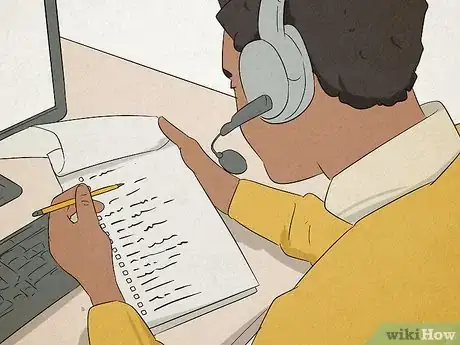
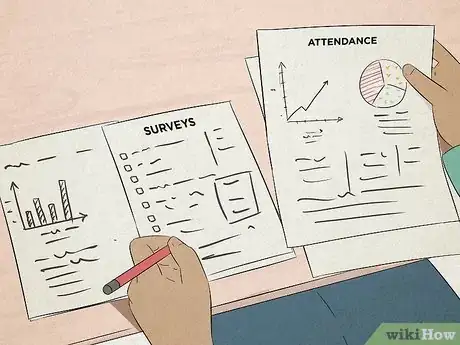






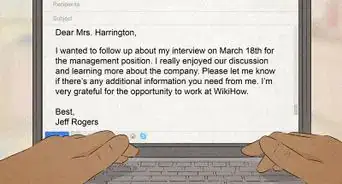
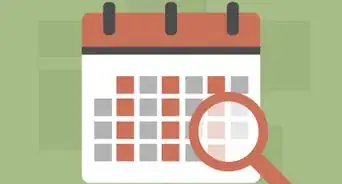



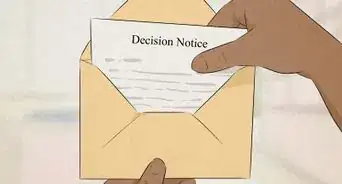

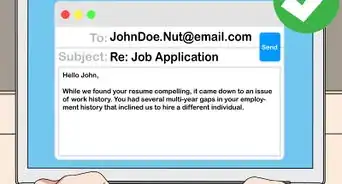



-Step-20-Version-2.webp)











